Female Problems
Nicole Hollander
The creator of the nationally syndicated comic strip, Sylvia, offers a hilarious look at being female in a collection of reflections and cartoons on such matters as visiting the gynecologist, bad hair days, and Martha Stewart.
0440506867
Slake's Limbo
Felice Holman
"When a poet like Ms. Holman writes prose, the effects are still lyric, and she has made full use of her talents in creating this novel of a troubled boy . . . skillfully told, forceful, and heartening."—Publishers Weekly. ALA Notable Children's Book; ALA Best Book for Young Adults; ALA Best of the Best Books for Young Adults; The Horn Book Fanfare Honor List.
0689710666
Asian Vegetarian Feast: Tempting Vegetable And Pasta Recipes From The East
Ken Hom
Fresh vegetables, pasta, rice, and beans are important in any cuisine, but no cultures approach meatless cooking with more invention and appeal than those of Asia. And no chef captures Asian culinary ingenuity with more clarity, simplicity, and energy than Ken Hom. From appetizers to desserts, Hom takes your palate on a tour of the vegetarian specialties of Thailand, China, Vietnam, Japan, and Malaysia and through the aromatic world of Asian ingredients and cooking techniques. Hom's collection of more than 175 recipes will delight and inspire not just the vegetarian cook but all those in search of new foods and flavors that are healthy, fresh, and satisfying.
0688151388
Wasted: A Memoir of Anorexia and Bulimia
Marya Hornbacher
"I fell for the great American dream, female version, hook, line, and sinker," Marya Hornbacher writes. "I, as many young women do, honest-to-God believed that once I Just Lost a Few Pounds, suddenly I would be a New You, I would have Ken-doll men chasing my thin legs down with bouquets of flowers on the street, I would become rich and famous and glamorous and lose my freckles and become blond and five foot ten." Hornbacher describes in shocking detail her lifelong quest to starve herself to death, to force her short, athletic body to fade away. She remembers telling a friend, at age 4, that she was on a diet. Her bizarre tale includes not only the usual puking and starving, but also being confined to mental hospitals and growing fur (a phenomenon called lanugo, which nature imposes to keep a body from freezing to death during periods of famine).
0060858796
About a Boy
Nick Hornby
Will Lightman is a Peter Pan for the 1990s. At 36, the terminally hip North Londoner is unmarried, hyper-concerned with his coolness quotient, and blithely living off his father's novelty-song royalties. Will sees himself as entirely lacking in hidden depths—and he's proud of it! The only trouble is, his friends are succumbing to responsibilities and children, and he's increasingly left out in the cold. How can someone brilliantly equipped for meaningless relationships ensure that he'll continue to meet beautiful Julie Christie-like women and ensure that they'll throw him over before things get too profound? A brief encounter with a single mother sets Will off on his new career, that of "serial nice guy." As far as he's concerned—and remember, concern isn't his strong suit—he—he's the perfect catch for the young mother on the go. After an interlude of sexual bliss, she'll realize that her child isn't ready for a man in their life and Will can ride off into the Highgate sunset, where more damsels apparently await. The only catch is that the best way to meet these women is at single-parent get-togethers. In one of Nick Hornby's many hilarious (and embarrassing) scenes, Will falls into some serious misrepresentation at SPAT ("Single Parents—Alone Together"), passing himself off as a bereft single dad: "There was, he thought, an emotional truth here somewhere, and he could see now that his role-playing had a previously unsuspected artistic element to it. He was acting, yes, but in the noblest, most profound sense of the word."
What interferes with Will's career arc, of course, is reality—in the shape of a 12-year-old boy who is in many ways his polar opposite. For Marcus, cool isn't even a possibility, let alone an issue. For starters, he's a victim at his new school. Things at home are pretty awful, too, since his musical therapist mother seems increasingly in need of therapy herself. All Marcus can do is cobble together information with a mixture of incomprehension, innocence, self-blame, and unfettered clear sight. As fans of Fever Pitch and High Fidelity already know, Hornby's insight into laddishness magically combines the serious and the hilarious. About a Boy continues his singular examination of masculine wish-fulfillment and fear. This time, though, the author lets women and children onto the playing field, forcing his feckless hero to leap over an entirely new—and entirely welcome—set of emotional hurdles.
1573227331
|
Fever Pitch
Nick Hornby
In the States, Nick Hornby is best know as the author of High Fidelity and About a Boy, two wickedly funny novels about being thirtysomething and going nowhere fast. In Britain he is revered for his status as a fanatical football writer (sorry, fanatical soccer writer), owing to Fever Pitch—which is both an autobiography and a footballing Bible rolled into one. Hornby pinpoints 1968 as his formative year—the year he turned 11, the year his parents separated, and the year his father first took him to watch Arsenal play. The author quickly moved "way beyond fandom" into an extreme obsession that has dominated his life, loves, and relationships. His father had initially hoped that Saturday afternoon matches would draw the two closer together, but instead Hornby became completely besotted with the game at the expense of any conversation: "Football may have provided us with a new medium through which we could communicate, but that was not to say that we used it, or what we chose to say was necessarily positive." Girlfriends also played second fiddle to one ball and 11 men. He fantasizes that even if a girlfriend "went into labor at an impossible moment" he would not be able to help out until after the final whistle.
Fever Pitch is not a typical memoir—there are no chapters, just a series of match reports falling into three time frames (childhood, young adulthood, manhood). While watching the May 2, 1972, Reading v. Arsenal match, it became embarrassingly obvious to the then 15-year-old that his white, suburban, middle-class roots made him a wimp with no sense of identity: "Yorkshire men, Lancastrians, Scots, the Irish, blacks, the rich, the poor, even Americans and Australians have something they can sit in pubs and bars and weep about." But a boy from Maidenhead could only dream of coming from a place with "its own tube station and West Indian community and terrible, insoluble social problems."
Fever Pitch reveals the very special intricacies of British football, which readers new to the game will find astonishing, and which Hornby presents with remarkable humor and honesty—the "unique" chants sung at matches, the cold rain-soaked terraces, giant cans of warm beer, the trains known as football specials carrying fans to and from matches in prisonlike conditions, bottles smashing on the tracks, thousands of policemen waiting in anticipation for the cargo of hooligans. The sport and one team in particular have crept into every aspect of Hornby's life—making him see the world through Arsenal-tinted spectacles. —Naomi Gesinger
1573226882
High Fidelity
Nick Hornby
It has been said often enough that baby boomers are a television generation, but the very funny novel High Fidelity reminds that in a way they are the record-album generation as well. This funny novel is obsessed with music; Hornby's narrator is an early-thirtysomething English guy who runs a London record store. He sells albums recorded the old-fashioned way—on vinyl—and is having a tough time making other transitions as well, specifically adulthood. The book is in one sense a love story, both sweet and interesting; most entertaining, though, are the hilarious arguments over arcane matters of pop music.
1573225517
How to Be Good
Nick Hornby
In Nick Hornby's How to Be Good, Katie Carr is certainly trying to be. That's why she became a GP. That's why she cares about Third World debt and homelessness, and struggles to raise her children with a conscience. It's also why she puts up with her husband David, the self-styled Angriest Man in Holloway. But one fateful day, she finds herself in a Leeds parking lot, having just slept with another man. What Katie doesn't yet realize is that her fall from grace is just the first step on a spiritual journey more torturous than the interstate at rush hour. Because, prompted by his wife's actions, David is about to stop being angry. He's about to become good—not politically correct, organic-food-eating good, but good in the fashion of the Gospels. And that's no easier in modern-day Holloway than it was in ancient Israel.
Hornby means us to take his title literally: How can we be good, and what does that mean? However, quite apart from demanding that his readers scrub their souls with the nearest available Brillo pad, he also mesmerizes us with that cocktail of wit and compassion that has become his trademark. The result is a multifaceted jewel of a book: a hilarious romp, a painstaking dissection of middle-class mores, and a powerfully sympathetic portrait of a marriage in its death throes. It's hard to know whether to laugh or cry as we watch David forcing his kids to give away their computers, drawing up schemes for the mass redistribution of wealth, and inviting his wife's most desolate patients round for a Sunday roast. But that's because How to Be Good manages to be both brutally truthful and full of hope. It won't outsell the Bible, but it's a lot funnier. —Matthew Baylis
1573229326
A Long Way Down
Nick Hornby
In his eagerly awaited fourth novel, New York Times-bestselling author Nick Hornby mines the hearts and psyches of four lost souls who connect just when they've reached the end of the line.
Meet Martin, JJ, Jess, and Maureen. Four people who come together on New Year's Eve: a former TV talk show host, a musician, a teenage girl, and a mother. Three are British, one is American. They encounter one another on the roof of Topper's House, a London destination famous as the last stop for those ready to end their lives.
In four distinct and riveting first-person voices, Nick Hornby tells a story of four individuals confronting the limits of choice, circumstance, and their own mortality. This is a tale of connections made and missed, punishing regrets, and the grace of second chances.
Intense, hilarious, provocative, and moving, A Long Way Down is a novel about suicide that is, surprisingly, full of life.
What's your jumping-off point?
Maureen
Why is it the biggest sin of all? All your life you're told that you'll be going to this marvelous place when you pass on. And the one thing you can do to get you there a bit quicker is something that stops you getting there at all. Oh, I can see that it's a kind of queue-jumping. But if someone jumps the queue at the post office, people tut. Or sometimes they say "Excuse me, I was here first." They don't say "You will be consumed by hellfire for all eternity." That would be a bit strong.
Martin
I'd spent the previous couple of months looking up suicides on the Internet, just out of curiosity. And nearly every single time, the coroner says the same thing: "He took his own life while the balance of his mind was disturbed." And then you read the story about the poor bastard: His wife was sleeping with his best friend, he'd lost his job, his daughter had been killed in a road accident some months before . . . Hello, Mr. Coroner? I'm sorry, but there's no disturbed mental balance here, my friend. I'd say he got it just right.
Jess
I was at a party downstairs. It was a shit party, full of all these ancient crusties sitting on the floor drinking cider and smoking huge spliffs and listening to weirdo space-out reggae. At midnight, one of them clapped sarcastically, and a couple of others laughed, and that was it-Happy New Year to you, too. You could have turned up to that party as the happiest person in London, and you'd still have wanted to jump off the roof by five past twelve. And I wasn't the happiest person in London anyway. Obviously.
JJ
New Year's Eve was a night for sentimental losers. It was my own stupid fault. Of course there'd be a low-rent crowd up there. I should have picked a classier date-like March 28, when Virginia Woolf took her walk into the river, or November 25 (Nick Drake). If anybody had been on the roof on either of those nights, the chances are they would have been like-minded souls, rather than hopeless f*ck-ups who had somehow persuaded themselves that the end of a calendar year is in any way significant.
1573223026
Speaking with the Angel
Nick Hornby
There are lots of reasons to buy Speaking with the Angel, an anthology of first-person narratives by bright, young, mostly British literati: these are smart and original stories, none of them previously published elsewhere. What's more, it's for a good cause. Nick Hornby, editor of the collection and author of one of the pieces, has an autistic son, and in a raw and wrenching introduction he stresses the importance of educational institutions to serve such children, who "have no language, and no particular compulsion to acquire it, who are born without the need to explore the world." Accordingly, a portion of each sale benefits autism charities around the world.
Still, this is a collection that stands on its own merits, and requires no act of charity to purchase. In Roddy Doyle's "The Slave," for example, a 42-year-old family man discovers a dead rat on his kitchen floor, and this unwelcome incursion from the natural world plunges him into a midlife crisis. In "Last Requests," Giles Smith introduces us to a prison cook who specializes in, well, last suppers. It's both hilarious and shocking to encounter this egomaniacal chef on the job: They can have what they like, within reason, up to a maximum of three courses, with coffee or tea and a piece of confectionary or a biscuit if they want it. No alcohol, for obvious reasons. Obviously, you'll get the jokers, like the one who said he wanted a whole roast pig with an apple in its mouth. Or the governor's head, one of them said he wanted. Elsewhere, in Hornby's own "NippleJesus," a skinhead bouncer becomes a museum guard and falls for the painting he's charged to protect, a crucifixion collage made up of thousands of tiny breasts cut out of porn magazines. The stories in Speaking with the Angel all feel up to the minute, abounding with references to politics and popular culture. Yet the obscenity and slang ultimately amount to a form of bluster, an acknowledgement of the intrinsic fragility that all 12 of these narrators share. —Victoria Jenkins
1573228583
Noisy Outlaws, Unfriendly Blobs, and Some Other Things . . .: That Aren't as Scary, Maybe, Depending on How You Feel About Lost Lands, Stray Cellphones, ... Quite Finish, So Maybe You Could Help Us Out
Nick Hornby, Neil Gaiman, Jon Scieszka, Jonathan Safran Foer, Editors of McSweeney's
A collection of stories for wise young people and immature old people, written by favorites of all ages: Nick Hornby (High Fidelity, About a Boy), John Scieszka (The Stinky Cheese Man), Neil Gaiman (The Sandman, American Gods), and many others. Each story features color illustrations by a different artist, including Barry Blitt, Marcel Dzama, and Lane Smith.
Lemony Snicket adds an introduction and a story of his ownat least, he starts one, and then it is up to the reader to finish. The story appears on the inside of the dust jacket; you add your own thrilling, joyful, or disgusting ending. The jacket then folds up into a fancy envelope, addressed to us. Our favorite ending will receive a fabulous prize of some sort.
1932416358
Comic Book Tattoo Tales Inspired by Tori Amos
Rantz A. Hoseley, Tori Amos
Over 80 of the best creators from every style and genre have contributed over 50 stories to this anthology featuring tales inspired by the songs of multi-platinum recording artist, Tori Amos! Featuring an introduction by Neil Gaiman and an extensive roster of talent, Comic Book Tattoo encapsulates the breadth, depth, and beauty of modern comics in this coffee table format book.
Full list of contributors include: David Mack, Josh Hechinger, Matthew Humphreys, Jonathan Tsuei, Eric Canete, Jason Horn, Dean Trippe, Sara Ryan, Jonathan Case, Rantz A. Hoseley, James Stokoe, Tristan Crane, Atticus Wolrab, Kako, Nikki Cook, Drew Bell, Kevin Mellon, Jeff Carroll, Mike May, Jeremy Haun, Amber Stone, Leif Jones, Elizabeth Genco, Carla Speed Mcneil, Kelly Sue Deconnick, Andy Macdonald, Nick Filardi, Cat Mihos, Andre Szymanowicz, Gabe Bautista, C.B. Cebulksi, Ethan Young, Joey Weltjens & Lee Duhig, Omaha Perez, Irma Page, Mark Buckingham, Rantz A. Hoseley, Ming Doyle, Mike Maihack, John Ney Reiber, Ryan Kelly, Alice Hunt, Trudy Cooper, Jonathan Hickman, Matthew S. Armstrong, Neil Kleid, Christopher Mitten, Kristyn Ferretti, Stephanie Leong, Sonia Leong, Peov, Kelly Sue Deconnick, Laurenn Mccubbin, John Bivens, Hope Larson, Emma Vieceli, Faye Yong, Chris Arrant, Star St.Germain, Mike Dringenberg, Paul Maybury, Jim Bricker, Craig Taillefer, Dame Darcy, G. Willow Wilson, Steve Sampson, Neal Shaffer, Daniel Krall, Adisakdi Tantimedh, Ken Meyer Jr., Mark Sable, Salgood Sam, Tom Williams, James Owen, Seth Peck, Daniel Heard, Ivan Brandon, Callum Alexander Watt, Leah Moore, John Reppion, Pia Guerra, Mark Sweeney, Kristyn Ferretti, Jessica Staley, Shane White, Ted Mckeever, Chris Chuckry, Jimmie Robinson, Lea Hernandez Derek Mcculloch, Colleen Doran and Jason Hanley.
1582409641
|


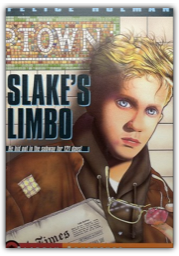

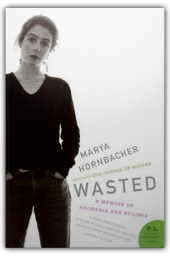
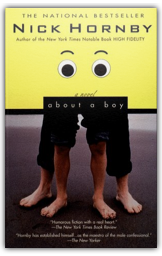
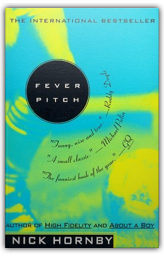
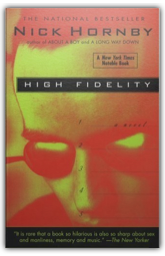
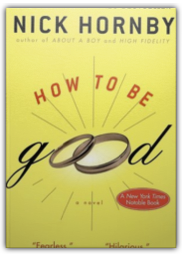
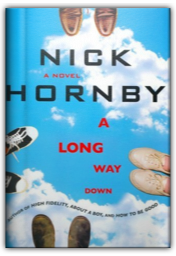
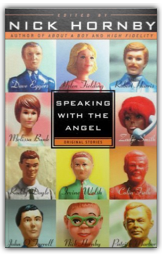
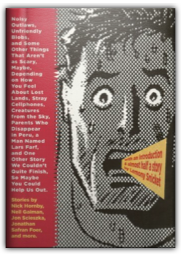
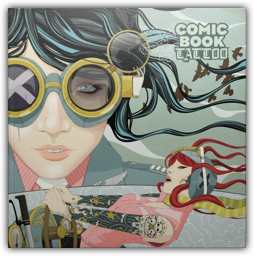


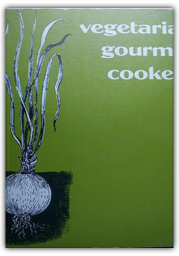
 Made with Delicious Library
Made with Delicious Library